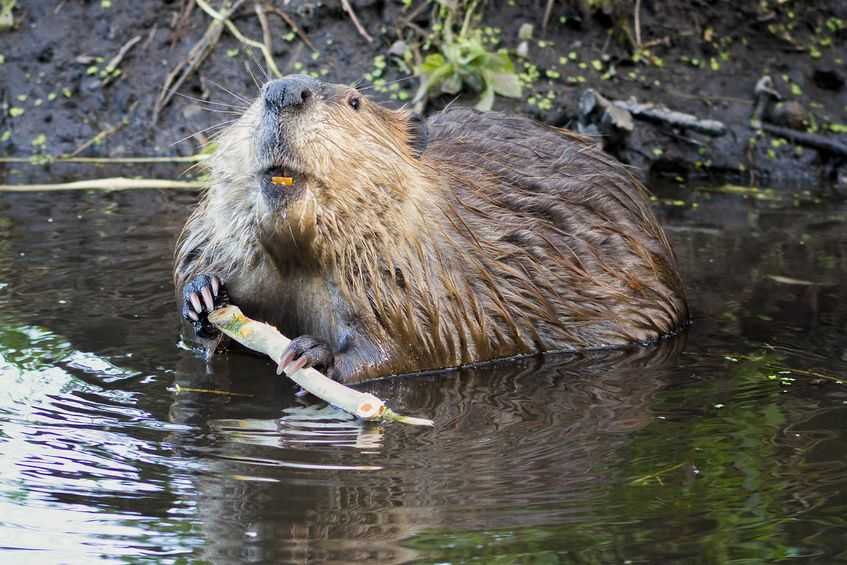
Farmers have warned that beavers are causing considerable damage on farmland after new research suggests they are "exceptional" at their ability to rebuild wetlands.
Researchers from the University of Stirling looked at the effects a small group of beavers had on a wetland originally drained for farming in Tayside, Scotland.
The 12-year study, partly-funded by Scottish Natural Heritage (SNH), found plant richness rose by 46% and the number of different plants recorded more than doubled.
Prof Nigel Willby from the university said wetlands were "tremendously important environments" for biodiversity, but were disappearing at an "alarming rate".
He said: "Beavers are renowned for their engineering skills, like dam building, and are now being considered as tools for restoring wetlands.
"They have been reintroduced widely, including in Scotland, partly for this purpose and our findings demonstrate the surprisingly large benefits they can bring to biodiversity."
Beavers were native to Scotland before being hunted to extinction in the 16th century.
'Proper management'
However, farmers have expressed concern about the increasing amount of beaver numbers.
Farming union NFU Scotland has insisted that 'proper management' of the species is fundamental in order to avoid impact on agriculture. Some farmers have warned of considerable damage to farmland.
NFU Scotland and other land management and environmental organisations wrote a joint letter to Scotland's Environment Secretary Roseanna Cunningham to set out broad principles and key components of an appropriate management regime.
Rob Livesey, NFU Scotland’s Vice President previously commented about the situation, saying beavers must be 'appropriately managed' to minimise the risk of unacceptable impacts on agriculture.
He said it is a view that is shared by many within the conservation community.
'Illegal'
He continued: “NFU Scotland believes the release of beavers into Tayside was illegal, should never have happened, and should not have been allowed to lead to the situation we have today. We expect any future illegal activity of this type to be dealt with as a wildlife crime.
“In the announcement by the Environment Secretary, she acknowledged the impacts that beavers can have on agriculture, and accepts the need for a fit-for-purpose management regime.
“It is essential that Scottish agriculture is not negatively affected by this decision.”
NFUS said it is sceptical that beavers can be excluded from areas of highly productive farmland that are heavily reliant on complex drainage systems and flood banks.
